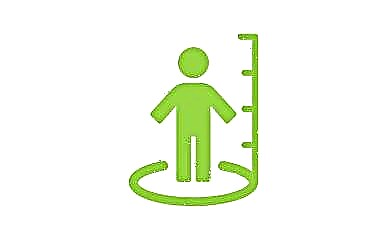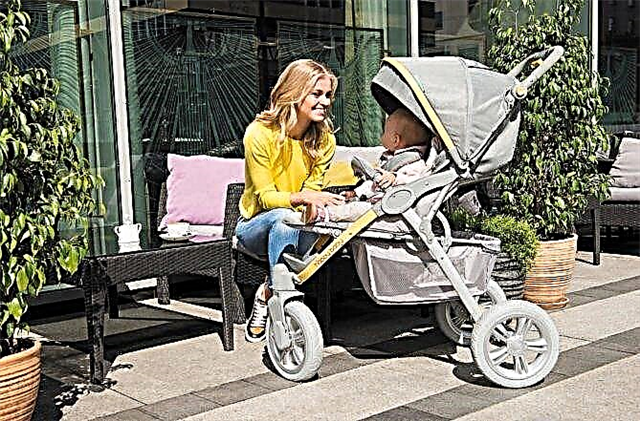
Parents of babies are well aware that all stages of the development of a baby by modern pediatrics are placed in a certain age range, which will be more convenient for mothers and fathers to navigate in the process of growing a child. So, the timing of the introduction of complementary foods, the approximate timing of the appearance of the first teeth. There are also deadlines for skills such as handling a spoon while eating and chewing and swallowing solid foods.
According to medical standards, a child at 7-8 months old can eat from a spoon with the help of his mother, and by a year he can keep it on his own. Confidently own a spoon, according to official textbooks on pediatrics, the baby should be one and a half years old. The baby should bite and chew solid food closer to the year, if the number of teeth allows.

In theory, everything looks smooth and smooth. In practice, parents often face problems. The child does not want to eat solid food, even if he has teeth, the child refuses to take a spoon in his hands, quickly loses interest in eating with a spoon, stops eating or chokes on pieces. The authoritative pediatrician Yevgeny Komarovsky tells parents what to do in this situation.
Dr. Komarovsky will tell you all the feeding rules in the next video.
Komarovsky about the problem
Does not chew
There are no children in the world who would not have learned to chew and swallow by the age of 5-6, says Evgeny Komarovsky. All people have a chewing reflex (and this is not a skill, but a reflex!), Only it is activated at different times. Some earlier, others later. When asked what prevents the reflex from developing early, the doctor answers one thing - parents!

Overly caring parents who are in no hurry to give their child solid food are all afraid that the baby will choke. As a result, at 2 years old, when he is already physiologically able to eat in pieces on his own, he continues to receive food rubbed into gruel from mom and dad.
Doesn't eat from a spoon
District pediatricians, especially the older generation, very often remind mothers that a child by 8-9 months should eat normally from a spoon, and a year to keep it on his own and at the same time get it into his mouth. Allegedly, this skill can be used to judge the neuropsychic development of the child.
Evgeny Komarovsky strongly disagrees with this formulation.
A spoon is more of a psychotherapeutic technique for mom and dad, and not an extremely necessary thing for the child himself.
In other words, if the baby eats from a spoon, and even himself, the parents begin to respect themselves immensely, take pride in their upbringing of the baby and in every possible way feel “like everyone else” and even better. But if he does not take a spoon, or, worse, denies it altogether, then this is a distress signal for many mothers, saying that somewhere she, mother, made a mistake - she was too lazy to teach, did not insist, did not demand, did not interest ...

In fact, the child's need to eat with a spoon on his own will sooner or later form on his own. And then the baby pretty quickly (because there is motivation-interest!) Will learn to hold a spoon and bring it to the mouth. Therefore, if the baby prefers to eat liquid porridge from a bottle at 9-11 months, you should not force him to do it with a spoon. Everything has its time.

Doesn't want to eat food in pieces
Yevgeny Komarovsky warns that this problem is quite common among children who have been breastfed for a long time, and their parents were in no hurry to accustom them to complementary foods. But if such questions have arisen, then it is too late to look for the reasons, you need to think about what to do.

Komarovsky urges parents to reasonably and objectively assess their child's ability to chew. To do this, you need to calculate how many teeth he has, and how they are located. Giving a crumb an apple or a bagel to gnaw if he has only two teeth is a real parental crime, especially considering that the vast majority of parents do not know how to provide first aid at all. Two teeth are enough to chew off a piece, but not enough for reflex chewing.
Therefore, it is better to adhere to the same approach to the consistency of food in the diet, which manufacturers of ready-made baby food adhere to, and they change it gradually - first mashed potatoes, then mashed potatoes with small pieces, then thick homogeneous food and, finally, thick food with solid fragments. But here it is difficult to designate the age range, says Evgeny Olegovich, since all children are individual, and one a year with a whole mouth of teeth chews an apple, and another one and a half with three or four or a little more teeth continues to eat puree.


Doesn't want to eat until they turn on cartoons
This is another common problem. The child looks at his parents, copies them, and 90% of the population is used to eating while watching TV. In addition, some especially "quick-witted" mothers specifically include cartoons that the child is distracted from the furious resistance to eating, while she, a caring mother, will stuff a couple of extra spoons of porridge or mashed potatoes into him.

Komarovsky recommends not forming such a habit in a child, but at the same time getting rid of his adult dependence on television.
Yes, the kid will eat more by watching TV. But this is precisely the main danger. When a child looks at a plate while eating, he produces gastric juice, which is so much needed for normal digestion. And if he looks at the cartoon characters, then the juice is not produced, and such food will not bring any benefit, and threatens with stomach diseases. Even for this good reason, you can't eat while watching cartoons.

Tips
- If a child does not chew, but tries to lick or suck an apple or a cookie, he does not need to rush to rub this apple on a grater or soak the cookies in milk. Give solid food more often, if the number of teeth allows, let him exercise. It works for everyone, without exception. Not a single child has yet gone to school without knowing how to chew food.
- It is best to give complementary foods with a special baby spoon, and not an ordinary teaspoon. Such a cutlery is made of plastic, which will not hurt the baby, it has a smaller volume, which will not make it difficult to swallow. If the child does not accept even such a spoon, you should not feed him so forcefully. Let him eat from the bottle for now.
- If the child refuses to chew, swallow and take the spoon in hand, Komarovsky advises to reconsider the diet. It is likely that the baby simply does not have time to get really hungry. This happens in families where the baby is given something to eat "when it's time," and not when he asks for food. Overfeeding is not only the reason for the baby's unwillingness to take part in the process itself, it can trigger the mechanisms of a variety of diseases. Therefore, overfeeding is more harmful than not overfeeding.
- It is not difficult to teach a child to eat on his own, says Komarovsky, the main thing is to “catch the moment” and help the child, unobtrusively support him in an effort to take a spoon, a cup in his hands. But to teach by force, especially if the child is not yet ready to act independently at the table, and even more so to "press" on the baby, is not the best parental decision.
- If a child is selective in food (he only has something specific), then this is definitely not a hungry child, says Dr. Komarovsky. Real hunger will completely eliminate selectivity. Therefore, you should not indulge such selectivity, the child should eat what his mother put in front of him. If he doesn't eat, then he doesn't want to eat. Better to wait until he is really hungry.
- There is no need to do for the child what he is already capable of doing himself. If we are talking about the fact that a baby does not take a spoon at the age of one and a little older, this is one thing. But everything changes if a child at 3-4 years old does not want to eat himself and asks his mother to feed him. After two years, Komarovsky advises putting on a plate, giving a spoon and leaving the kitchen for a while, every day increasing the time of absence.
Returning, mom should not be interested in how much the crumb ate with a spoon, you need to pretend that nothing surprising happened. Usually, after a few days, the child begins to eat at least half of the prescribed portion. Do not forget to exercise maximum patience and tact.





